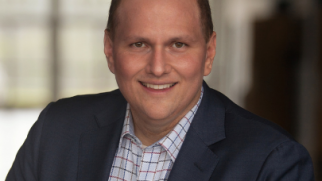Outpatient clinic coordinator Zeenal Patel shares how she supports her patients when they face difficult decisions during COVID-19

We recently spoke with Zeenal Patel, an outpatient clinic coordinator at Alta Bates Summit Medical Center in Berkeley, California.
In the interview below, Zeenal shares how the strong emotional connections she makes with her patients inspires her to help them find the support they need.
What does your day-to-day look like?
I am the outpatient clinical coordinator for outpatient pharmacy at Alta Bates Summit Medical Center. We have three outpatient pharmacies, two of which are specialty pharmacies in HIV and oncology. Each day is rarely the same. I can be found in the pharmacy helping with workflow, in a meeting room with students, or going over oral chemotherapy regimens with patients.
What is most rewarding about your job?
The most rewarding thing about being a pharmacist is the opportunity to make an impact in my patients’ lives by applying my knowledge, experience, and skills to the best of my ability to assure optimal outcomes for my patients.
It’s rewarding to get to know patients a lot more closely and the ability to develop strong emotional connections – I think this inspires me not only on the job but in life.
I get to experience the deepest trust, strongest compassion, and most powerful human emotions. Even with patients that are no longer progressing with their health, I find myself determined to make their last years of life as comfortable as possible.
Besides the patients, I also find it rewarding to work amongst a multi-disciplinary team of providers, nurses, dieticians, social workers, and of course, pharmacists! Everyone supports and encourages each other!
What sacrifices are patients making when they can’t afford their medications?
Patients are making all sorts of sacrifices in situations where they can’t afford their specialty medications. As we know, specialty therapies are often the hardest to access for patients, usually due to process complexity and affordability challenges. I’ve had patients omit appointments and refuse to pick up their medication altogether in order to stay on top of paying their bills.
Patients that are financially impacted by the COVID-19 pandemic are the ones we see most that decide to delay or even refuse to start treatment altogether.
How has the PAN Foundation impacted your patients?
I can think of so many examples where PAN has literally changed the outcomes of our patients.
Recently we had a patient who was diagnosed with Stage IV ovarian cancer who presented to the pharmacy extremely anxious not only because of her diagnosis but also the potential out-of-pocket cost she may need to face. After the prior authorization was completed, her co-pay came out to be ~$3000 for the first month.
When I broke the news to her, the patient was extremely distraught and expressed she would not be able to afford this therapy. I explained to her what the PAN foundation was and that I would apply for her in hopes of relieving this financial toxicity. Luckily, she qualified for a grant, and when we told her, she was not only happy but expressed relief.
There are countless stories similar to this one where the PAN Foundation has really changed the trajectory for patients.
Share your story
Do you have a story about the impact that financial assistance has had on your patients? We would love to hear from you!
Was this helpful?
